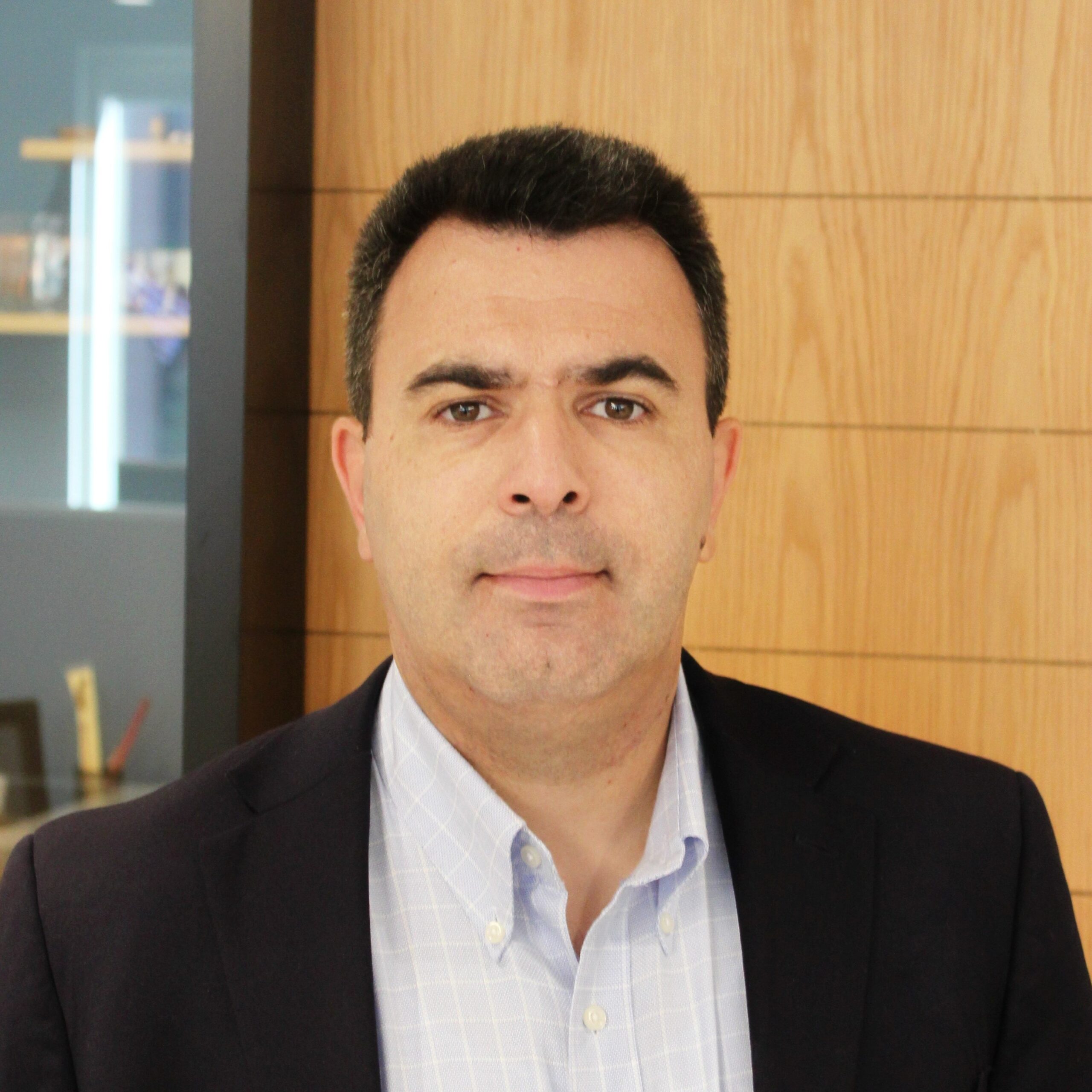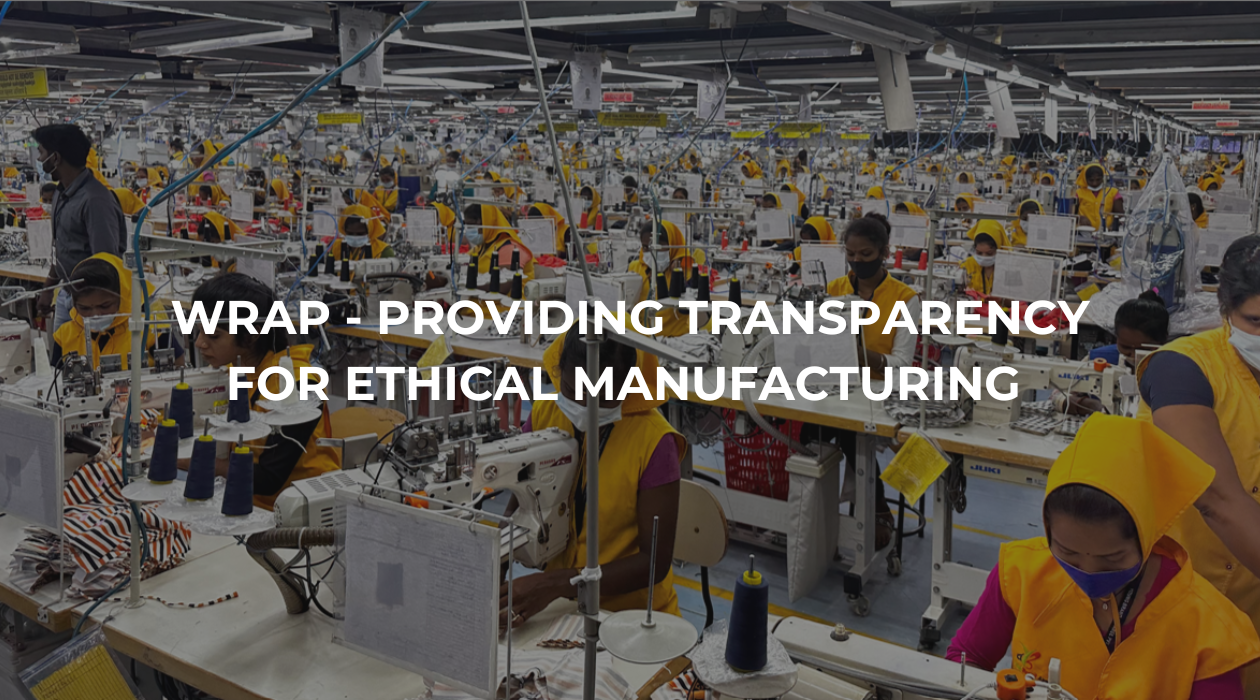
Avedis Seferian, the CEO and President of WRAP
In a world where the fashion industry is often criticized for its lack of sustainability and worker welfare, there are organizations like WRAP (Worldwide Responsible Accredited Production) that are working tirelessly to make a difference. CEO of Stars Design Group Bret Schnitker and CSO Emily Lane recently had the opportunity to speak with Avedis Seferian, the CEO and President of WRAP, about the important work they do in promoting safe, lawful, humane, and ethical manufacturing conditions in the apparel industry. Our conversation touched on a wide range of topics, from the challenges faced by factories to the progress being made in improving workers’ lives. In this article, we will delve deeper into the key themes discussed in our conversation, using verbatim quotes from Avedis to provide insights and analysis.
The Value of Independent Certification

Factory Visit by Stars Team in India
One of the distinguishing factors of WRAP is that it is an independent social compliance certification program. Unlike other organizations that only conduct audits, WRAP goes beyond that by providing a certification based on a comprehensive assessment of a factory’s compliance with local laws, international norms, and buyer expectations. Avedis explains the value of this certification, stating, “What you’re getting is simply a readout of the conditions in the factory. It’s up to the buyer to then decide, is this enough for them? It’s up to the buyer to then decide if this area was found short in the audit, what are we going to do about it? Who’s going to correct it? Who’s going to check that it’s been corrected? We take the audit report and if it’s found wanting in areas, we’re the ones that bake into our process a corrective action plan.” 
This certification process not only provides buyers with assurance that the factory meets international standards, but it also helps factories improve their working conditions through a corrective action plan. Avedis emphasizes the importance of maintaining these standards, stating, “Factories, as you know very well, are very dynamic places. High labor turnover, they change all the time. You have to go back with some periodicity to make sure that the conditions remain at the optimal level.”
Challenges and Solutions
 While the apparel industry has made significant progress in improving working conditions, there are still challenges that need to be addressed. Avedis highlights the importance of addressing these challenges holistically, with collaboration from all stakeholders. He states, “Governments have a role to play that they often abdicate, not necessarily with any evil intent, but because they don’t have the resources. Buyers have a role to play as well. It isn’t simply all on the factory. They have a responsibility to make sure that they are responsible in their purchasing practices.”
While the apparel industry has made significant progress in improving working conditions, there are still challenges that need to be addressed. Avedis highlights the importance of addressing these challenges holistically, with collaboration from all stakeholders. He states, “Governments have a role to play that they often abdicate, not necessarily with any evil intent, but because they don’t have the resources. Buyers have a role to play as well. It isn’t simply all on the factory. They have a responsibility to make sure that they are responsible in their purchasing practices.”
One of the challenges faced by factories is the financial burden of certification. Avedis acknowledges this concern and explains how WRAP is working to make certification more accessible, especially for smaller factories. He states, “We recently made an announcement that it was time to adjust our pricing policy. But rather than just raise that price, we’ve actually lowered the price for small factories…lowering the registration fee for factories below 200 workers. It’s going to be very low. $650 for those below 100, $950 for those below 200… only raising them for factories that are bigger than that, and therefore will be better positioned to bear that burden.”
Avedis acknowledges this concern and explains how WRAP is working to make certification more accessible, especially for smaller factories. He states, “We recently made an announcement that it was time to adjust our pricing policy. But rather than just raise that price, we’ve actually lowered the price for small factories…lowering the registration fee for factories below 200 workers. It’s going to be very low. $650 for those below 100, $950 for those below 200… only raising them for factories that are bigger than that, and therefore will be better positioned to bear that burden.”
The Importance of Education and Collaboration
 Education plays a crucial role in driving change in the apparel industry. Avedis emphasizes the need for education not only about the work that WRAP does but also about the importance of avoiding proprietary audits. He states, “The practical reality of why some of these brands and retailers, continue to insist on their own proprietary audits is simply a lack of understanding on their part of why it’s such a bad idea”. The result of layers of proprietary audit is the time and expense creating a tremendous burden on factories having to do repetitive audits. Many of these are defined by unique standards not tied to global certification standards.
Education plays a crucial role in driving change in the apparel industry. Avedis emphasizes the need for education not only about the work that WRAP does but also about the importance of avoiding proprietary audits. He states, “The practical reality of why some of these brands and retailers, continue to insist on their own proprietary audits is simply a lack of understanding on their part of why it’s such a bad idea”. The result of layers of proprietary audit is the time and expense creating a tremendous burden on factories having to do repetitive audits. Many of these are defined by unique standards not tied to global certification standards. 
Collaboration is also key in addressing the complex issues faced by the industry. Avedis highlights the need for a holistic approach: “It isn’t simply one actor in the supply chain or in the larger ecosystem that has to bear the burden of responsibility for good behavior. Governments have a role to play, buyers have a role to play, and of course, the factories have a big role to play as well.”
Conclusion and Future Outlook

In Line Visit during Stars Program Production in India
The apparel industry has come a long way in improving working conditions, but there is still work to be done. Organizations like WRAP play a crucial role in promoting safe, lawful, humane, and ethical manufacturing conditions. Through independent certification and a focus on collaboration and education, WRAP is driving positive change in the industry.
As we look to the future, it is important to continue the conversation and work towards a more sustainable and ethical fashion industry. This requires ongoing commitment from all stakeholders, including governments, brands and retailers, and factories. By working together and embracing independent certification programs like WRAP, we can create a future where workers’ rights are protected, and the fashion industry truly uplifts some of the poorest people in the world.
In the words of Avedis Seferian, “It is a journey. You’re never going to ever arrive at a point where you say, ‘Oh, we’re done. Sustainability is solved, nothing more to do.’ There’s always going to be more to do. It’s always going to be a journey and that’s the point. It’s about making progress along that path and not being able to say, ‘Oh yeah, we’re there’, because that’s just not itself realistic.”
It’s always going to be a journey and that’s the point. It’s about making progress along that path and not being able to say, ‘Oh yeah, we’re there’, because that’s just not itself realistic.”
The journey towards a more sustainable and ethical fashion industry continues, and organizations like WRAP are leading the way. Let us all join hands and work toward a future where workers’ rights are protected, and the fashion industry becomes a force for positive change.
Learn more about Stars Design Group’s Ethics here.
Listen to the whole episode here:
*Note: This article is based on a Clothing Coulture conversation with Avedis Seferian, President and CEO of WRAP. All quotes are verbatim and direct from the transcript of the conversation.*
 Hadley Robinson is a Marketing and Website specialist at Stars Design Group. With a Bachelor of Arts in Fashion Business and a Minor in Photography degree from Columbia College Chicago, Hadley uses her knowledge of the fashion and art world to help manage SDG’s social and website channels.
Hadley Robinson is a Marketing and Website specialist at Stars Design Group. With a Bachelor of Arts in Fashion Business and a Minor in Photography degree from Columbia College Chicago, Hadley uses her knowledge of the fashion and art world to help manage SDG’s social and website channels.

